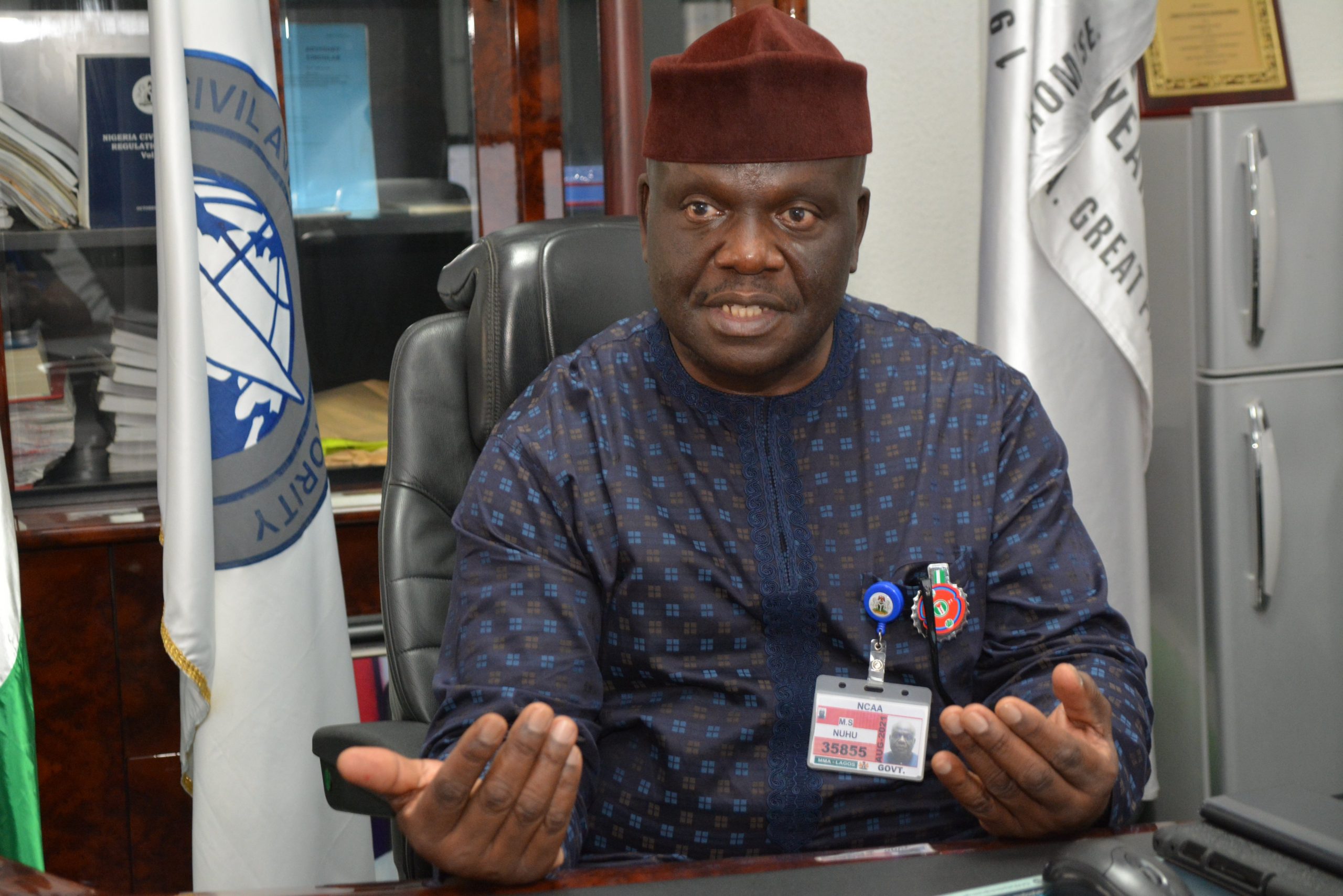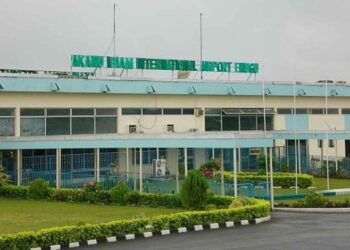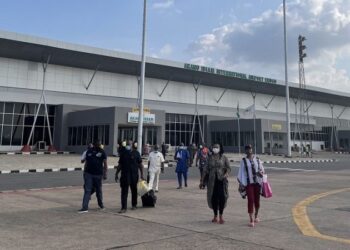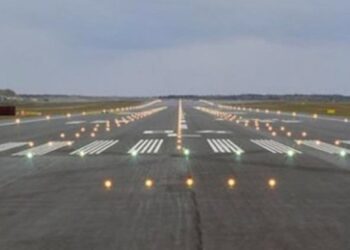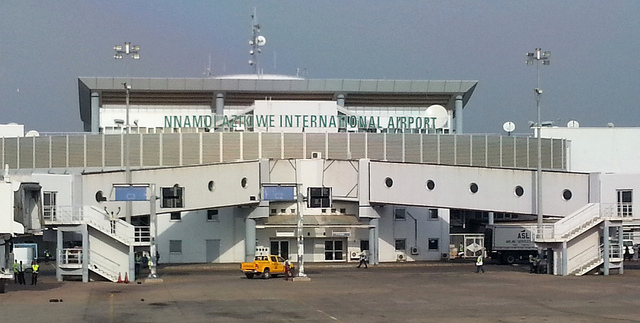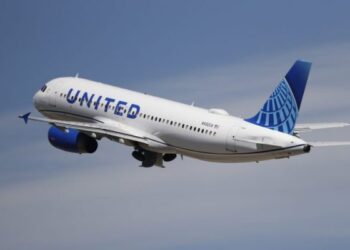Article Summary
- Nigerian aviation industry has experienced significant growth with an increase in the number of aircraft in the registry from 175 to 358 and the number of airports from 27 to 40.
- Regulatory achievements include a rise in Air Transport Licences (ATL) from 34 to 73, commercial certificates from 196 to 320, and Air Operator Certificates (AOCs) issued to airlines from 16 to 32.
- Challenges to sustainability and profitability include high costs, debt, Jet A1 fuel scarcity, and forex scarcity, which need to be addressed for long-term growth.
The total number of aircrafts in the Nigerian registry has climbed to 358 in the last eight years from 175 in 2015.
Also, the country’s airports have increased from just 27 within the same period to 40 at present.
The Director-General of Civil Aviation (DGCA), Capt. Musa Nuhu disclosed these at a presentation he made at the ongoing Federal Airports Authority of Nigeria (FAAN) National Aviation Conference (FNAC) with the theme: ‘‘Sustainability of the Aviation Industry In Nigeria.’
While delivering a presentation from a paper from the Regulator’s Perspective, Nuhu stated that despite the industry challenges, especially the recent breakout of the Covid-19 pandemic, aviation in Nigeria has been on a growth trajectory.
According to him, when the outgoing administration came on board in 2015, there were only 34 Air Transport Licences (ATL), but today, the number has increased to 73.
Nuhu also said that commercial certificates were just 196, but skyrocketed to 320 at present.
Besides, he explained that the number of Air Operator Certificates (AOCs) to airlines had increased by 100 per cent within the period, from only 16 to 32 at present.
In 2015, he explained that the number of the nation’s airports were only 27, but had increased by 13 in 2023 to 40 aerodromes.
Nuhu went ahead to emphasise that the airstrips across the country had moved from 77 to 92, which indicates an increase of 15 within the last 8 years.
He also disclosed that heliports across the country had shot-up from 221 in 2015 to 370 nationwide.
According to Nuhu, aviation has continued to play a significant role in the socio-economic development of Nigeria, stating that data released by the National Bureau of Statistics (NBS) recently, indicated that the sector was the second fastest growing industry of the nation’s economy pre-Covid.
The challenges of Nigerian aviation industry
He, however, regretted that this sector in Nigeria was faced with numerous challenges that impacted sustainability and profitability, stressing that many of the challenges were not under the Nigeria Civil Aviation Authority’s (NCAA) purview.
He however noted that through its regulatory framework, NCAA could create an enabling environment for airlines and other operators to thrive, as he mentioned some of the challenges to include high cost of funds, debt profile, Jet A1 and forex scarcity. He said in his words:
- “Air transport business is a relatively low yield venture that requires huge capital outlay. A difficult venture to implement with the prevalent macroeconomic environment in the country like double digit interest rates, currency devaluation, inflationary pressure and others.
- “Several domestic operators are languishing under the burden of high levels of indebtedness. These debts are owed to support service providers, both public and private. The NCAA is not spared of these debts.
- “Forex is a significant cost component of transactions in the aviation sector. Acquisition of equipment, spare parts, maintenance, personnel training, insurance and others. Lack of access to adequate forex at official rates, compels service providers resorting to secondary markets at exorbitant rates.
- “Jet A1 accounts for about 40 per cent of the cost of airline operations in Nigeria due to high prices. The cost of Jet A1 has tripled over the last 12 months, eroding the thin profit margins of airlines.”
Solution to the challenges
The Managing Director, FAAN, Capt. Rabiu Yadudu, in his speech, said that it was necessary to sustain development in the industry in Nigeria.
Yadudu emphasised that it is necessary for the sector in Nigeria to remain sound, harmonized and remain in compliance with the standards and recommended practices in the sector, as the aviation industry is 100 per cent regulated and Nigeria must comply with the global practices.
- “We need to do it well in a way that it is going to be viable and successful. We must comply with the standards,” he added.
He pointed out that FAAN has implemented at least seven resolutions reached at the 2022 edition of the conference, and they also commissioned an aerotropolis project at the Akure Airport just last week, noting that the airport used to be the biggest aerodrome in the country until recently, when Abuja Airport expanded to 11, 000 hectares.
He however lamented that despite the large size of the airport, much of the land had been lying fallow, but assured that the aerotropolis project commissioned at the airport would ensure the land is well-used.
He appealed to other investors to partner with the agency especially in the area of non-aeronautical revenues, maintaining that through this, the agency would be sustainable.
- “We cannot rely only on aeronautical revenue. We need the non-aeronautical revenues for us to remain sustainable, too. We need to make full use of all our resources, facilities and our resources. That is our target at FAAN,” he added.

